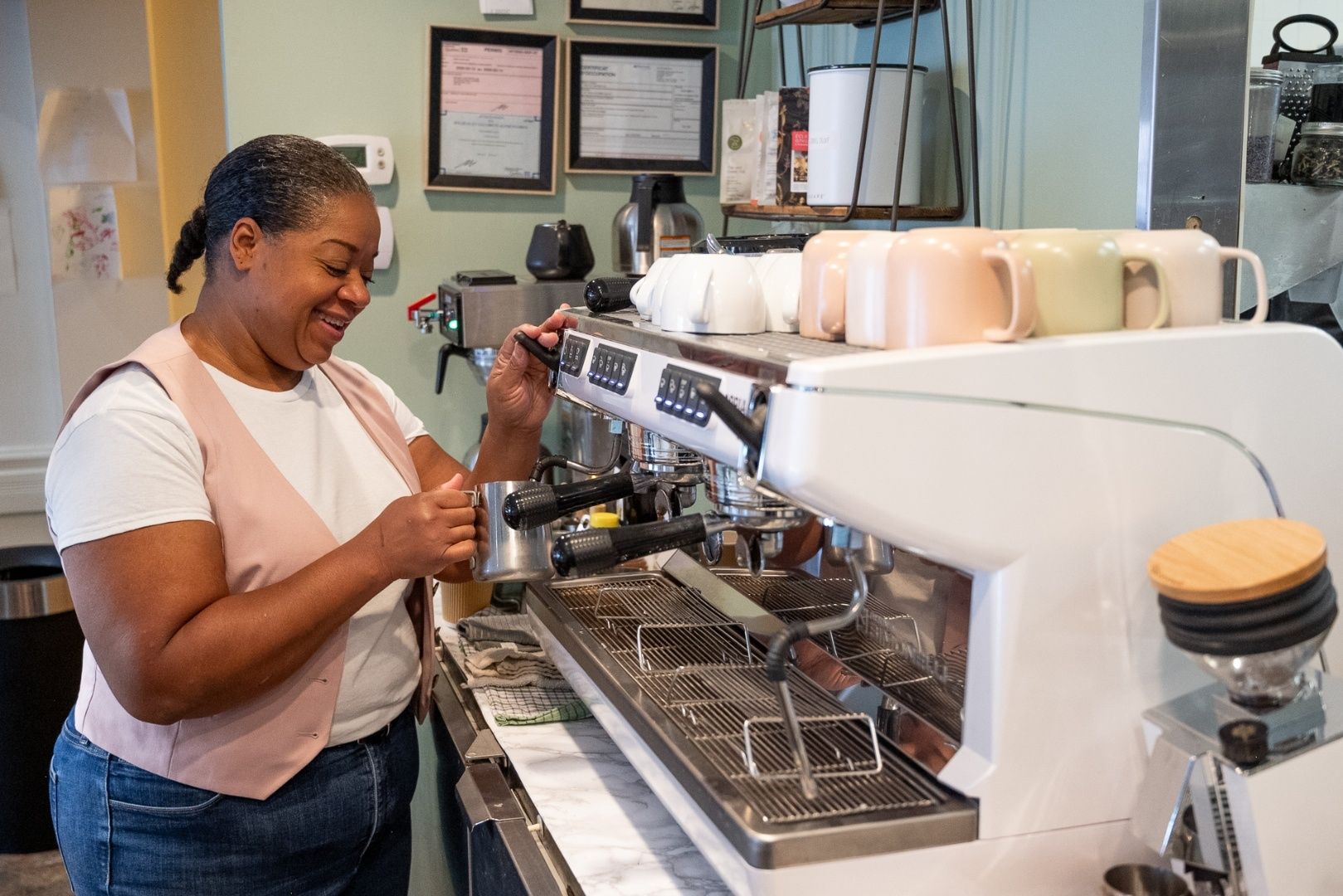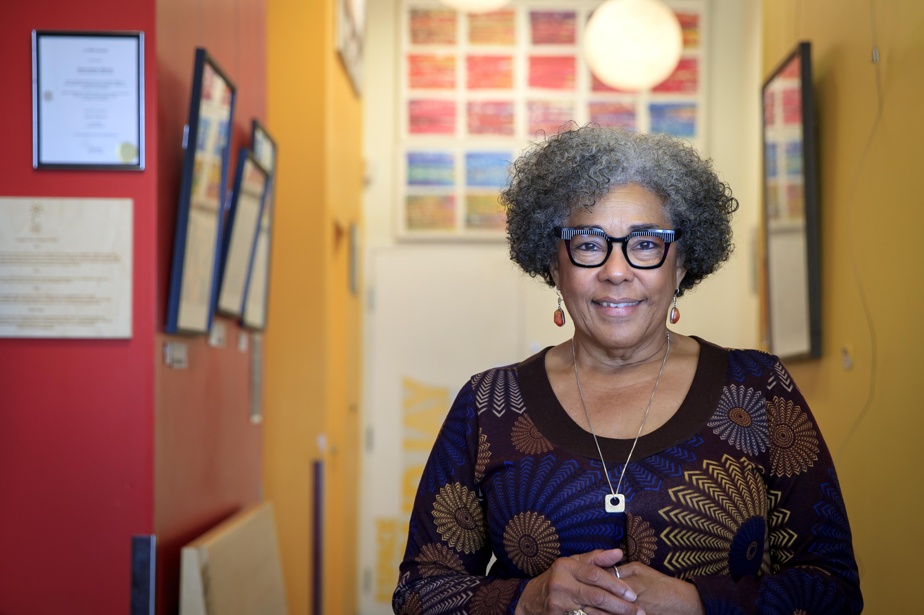Every Thursday at around 4 pm, in the gymnasium of the YMCA du Parc, the bounce of first-come balls announces the time of training for 13-16 year olds.
At 16:30 sharp, a whistle blew marked the start of training. “Rally! ” says Eddy Maurice, the basketball coach, whose greying beard attests to his 20 years of experience in youth intervention in various community centers.
Although he only joined the YMCA in 2023 as a field coordinator, Eddy already occupies a symbolic place. “Here, I am considered a bit like the dad of the Youth Zone,” he tells us with a big smile.
Surrounded by his players, the slender coach said a few words to them before starting training. “Congratulations for what you did [at the match] last Friday! I am so proud of you that I am telling everyone about it,” he said in a calm voice. “Even if there is a defeat, what you did on Friday was very strong! ” says the coach.
Smiles appear on the players' faces, and their hands gradually join Eddy's applause. Then, they will position themselves on the ground.
We sit in an adjoining room in the gymnasium to listen to the coach's story, who tells us how difficult schooling and his passion for basketball led him to invest in the field of youth intervention.
“It was either the army or Canada”
Eddy owes his dark skin to his Italian origins and to the sun of southern France. There he grew up until 15, before moving to Montreal with his mother in the 1990s.
As a teenager, Eddy can't stand the school system. “I didn't care, about school! I had no motivation to go,” he declares solemnly. This carefree approach to studies often put him in the role of the joker in the class. “I wasn't into delinquency, but I was into a lot of fun. Besides, I really liked girls,” he said, tilting his head to one side and then to the other, as if to support his point.
When his mother mentions the possibility of going to Canada, Eddy sees it as an opportunity to start a new phase, far from the obstacles he encounters in France. “I was not good at school, so it was either the army or Canada,” he says bluntly. The idea of a fresh start revived hope in him, especially when he thought about the importance of basketball in North America. Since the age of 12, Eddy has indeed had a passion for this sport. A love that comes from her mother, herself a former national player in Lyon, France.
“Basketball saved me,” he says, bringing one hand back to his heart. The orange ball not only prevented him from dropping out of school, but also from falling into the streets. “The Canadian school system makes us play for our school. If you don't go to school, you don't play. And that helped me.”
Basketball as a life lesson
“My first year as a teammate in Montreal, I did not have the opportunity to play a single game. I had to make a place for myself. Even though some players were less efficient than me, I stayed on the bench,” says Eddy, nodding his head. “But the following year, I joined the starting five,” he adds.
Eddy is not about to forget these lessons. He played until he was 32, and then wanted to pass on to young people the values that he himself learned on the field. “You learn perseverance, you learn to respect others, you learn to recognize the qualities of another person, you learn to recognize the qualities of another person, you discover your own qualities, and you also learn to be quiet,” he said while speaking with his hands. Basketball is also a way for him to teach young people to respect authority figures. “On the court, you can compare the referee to the police. We have to respect it,” he underlines.
At the age of 24, Eddy started youth intervention without a university degree, but with significant experience as a day camp leader. He also derives his strength from his role as big brother and big cousin in his family. “I am the oldest in my family. I have always been surrounded by my little cousins, my little brothers. Besides, I always liked the gang effect,” he explains to us, his eyes laughing.
An eventful start in youth intervention
Eddy remembers his first experience as a speaker very well. With a small smile, he says: “It was in La Piaule, in the 2000s, a period when the Beaubien—Jean-Talon neighborhood was highly gangrenous; so, I quickly learned on the court,” he shares. “There were a lot of fights, fires, and stabs on the basketball court,” he lists quickly.
However, this first eventful year did not discourage him. On the contrary, it allowed him to better understand young people. “All of these are situations that teach a lot. Without waiting for the police to intervene, we tried to solve the problems.”
Although his job can involve risks, Eddy says he has never been attacked or threatened by young people. He attributes this to the mutually respectful relationship he has always cultivated with them.
“Adults don't respect young people”
For Eddy, establishing a relationship of mutual respect between adolescents and adults is not limited to his work: it is a philosophy of life. But according to him, this approach is far from being shared. “By working with young people, I quickly realized that adults do not respect them. It is often said that you have to put yourself at the level of toddlers to understand them, and that's just as important with teenagers,” he insists.
His observation is clear: there is an intergenerational malaise. “Too often, adults look down on teenagers”, laments Eddy, bulging his chest to illustrate his words. He continues: “Teens are not often heard. However, often they are much more open than we are. You have to listen to them.”
For him, understanding the language of young people in order to take better action is just as important. “I try to teach my stakeholders that just because they insult each other or that one of them slaps on the head of another doesn't mean you have to get carried away. It's not the battle of the year, no! ” he exclaims.
Trajectory changes: MB, part of the 514 group
When Eddy is asked what he is proud of in his work, the speaker evokes with admiration the career of some young people. “I am proud of a lot [of them]. Some are immigrants, they are coming here, their parents don't speak French, but they manage to seize the opportunities that are available to them.”
Among the young people that Eddy met, one in particular impressed him. “One year, I worked at the Lucien-Pagé school. I was in the middle of school. I had an office and I picked up the students who were going to drop out,” he says. He then meets a teenager who comes to his office every noon to write and chat with him.
He wrote passionately, says Eddy: about religion, globalization, the perception of his own identity as a Moroccan immigrant. “But he was a young person who was in trouble. He was stealing iPhones. I often heard his name, the police came for him,” recalls Eddy, his eyes squinting.
Four years later, Eddy meets his former student again on the streets of Montreal. What he learned on this occasion touched him deeply. During our conversation, he revisited the scene: “He told me that he could never thank me enough for what I had done for him. Then I said to myself OK, but why? When he showed me his videos, I saw that he had over 300,000 views on YouTube! Wow!” he said, his eyes still squinted, his hand under his chin.
The man who had once fought to find his place in society became the rapper MB, from the group 514.
Eddy continues: “And my biggest pride is to go to the Damso concert and to see him on stage doing the opening act. When he saw me, he came off stage and hugged me,” he shares, as his hairs stand up on his arms. He thought for a few seconds, then added: “I am proud because this young man was not made for the school system. He understood it very quickly, and despite his stories with the police, he never gave up and became a rapper.”
A word for young people?
“In my life I must have met maybe 3,000 young people. I am not going to help everyone. I am here to give them keys. But sometimes they won't open the door,” he explains graphically.
The youth worker wants to pass on an important message: “In high school, we don't ask you to give 150% of yourself. Just give the minimum to succeed in school, try to go all the way. The school gives you a diploma, which is already a success in itself,” he declares, his eyes fixed.
“But if you stay in bed, someone else will take your place. There are over eight billion people in the world. As soon as I started to move, so did my life. The young people I saw move a little were successful. So my best advice is to get moving,” he says.
“If you don't do anything, then you won't get anything. If you don't try your Shoot With three seconds to go until the end of the match, are you sure you won't win your Game ”, he ends passionately.





.avif)
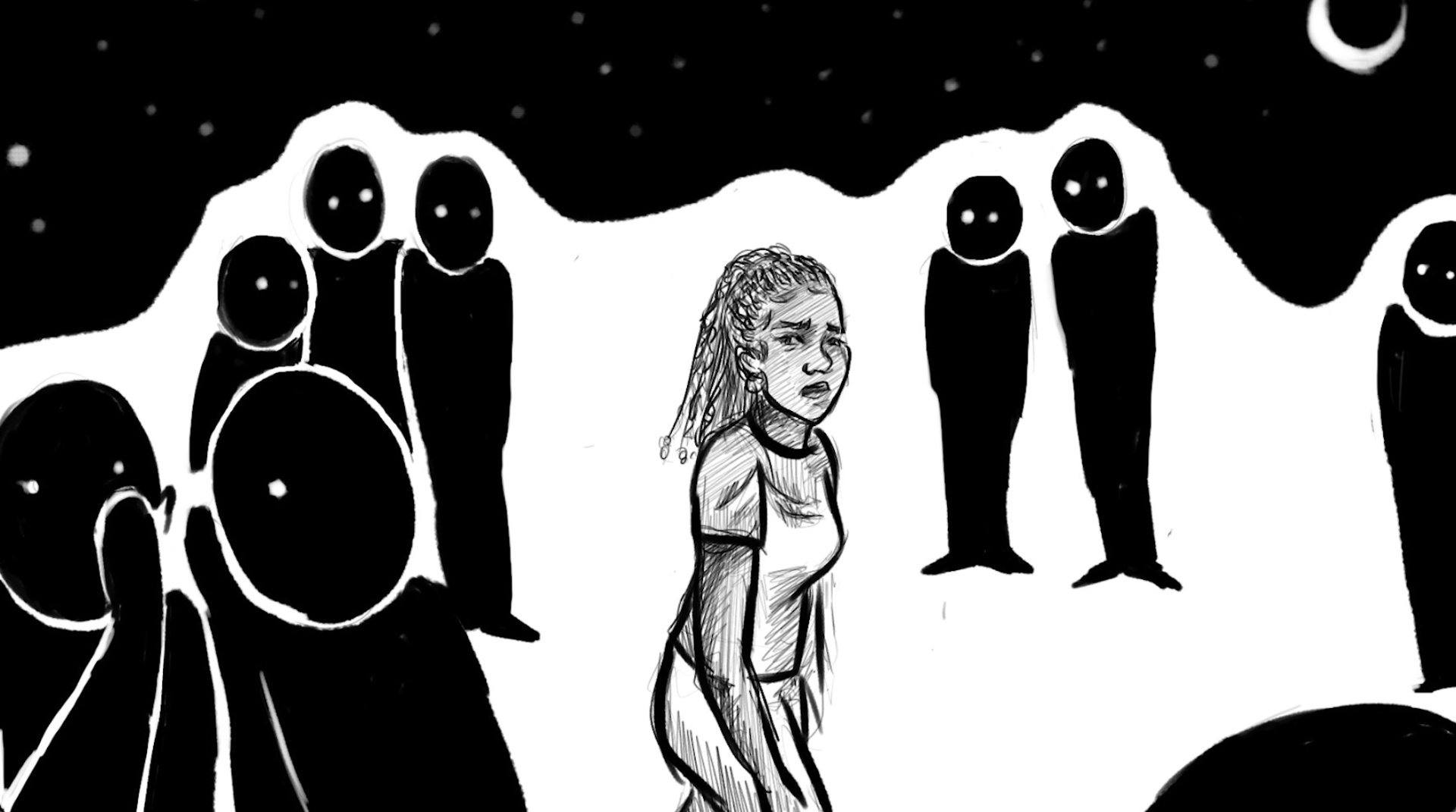
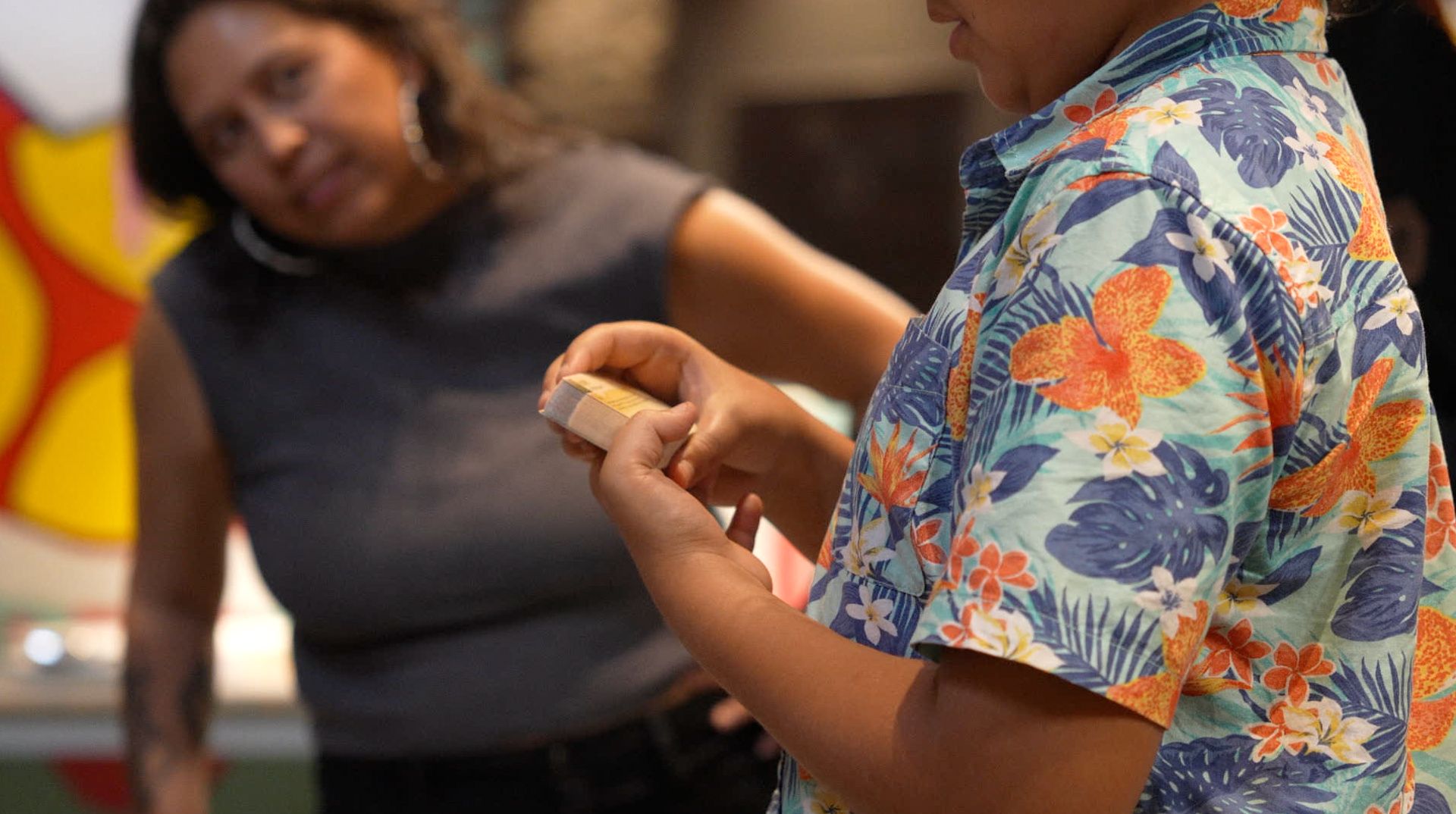
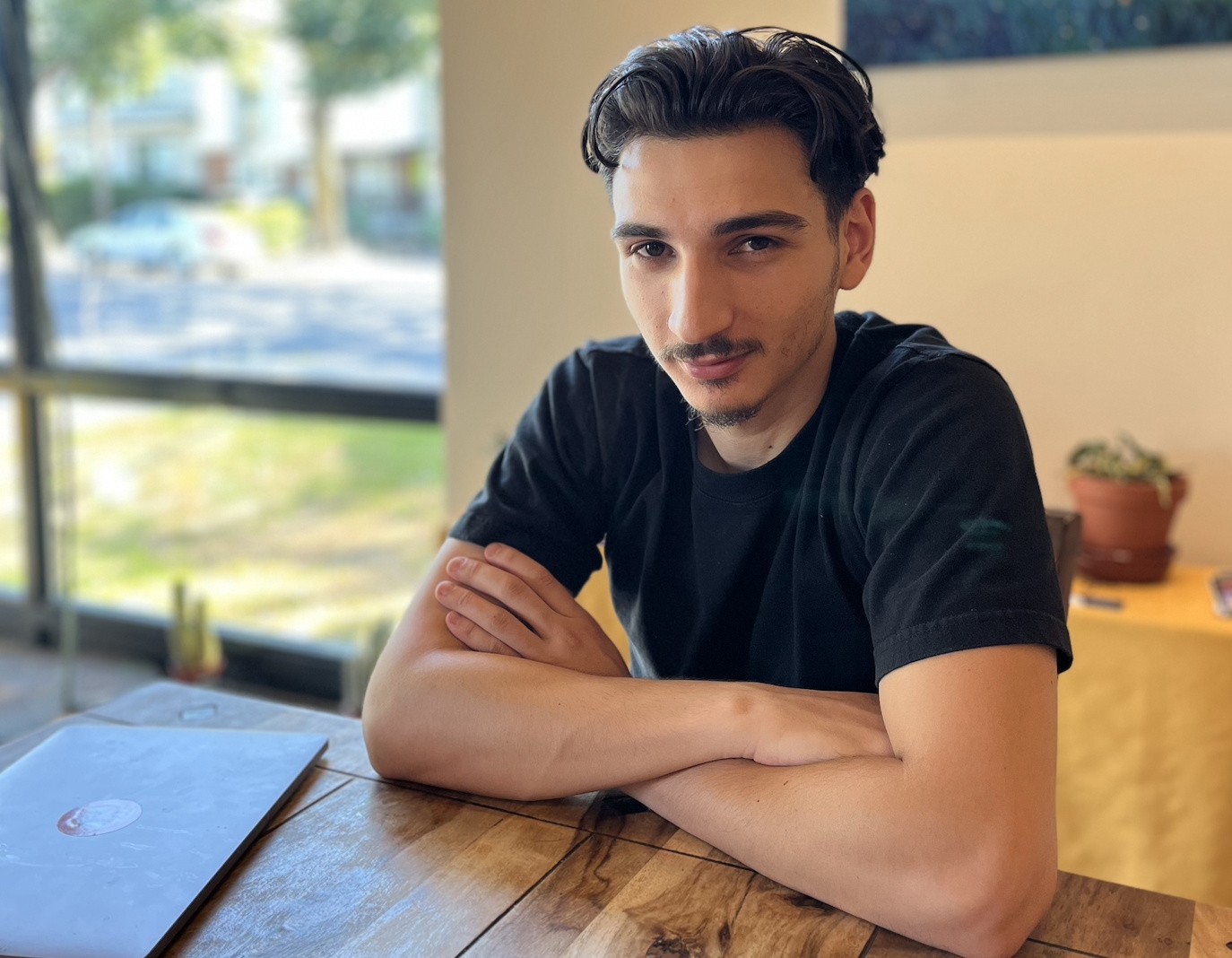
.jpg)
